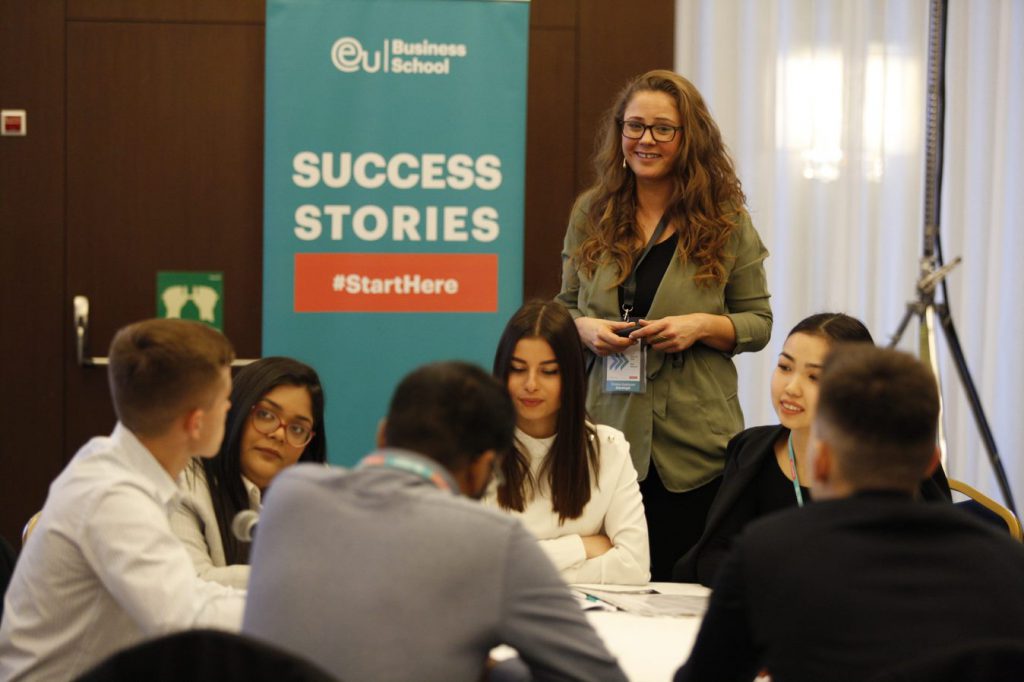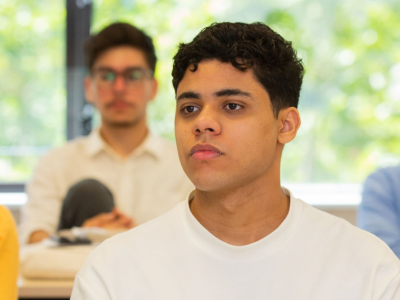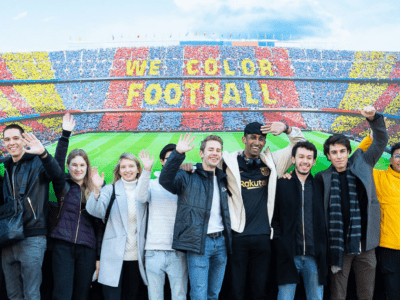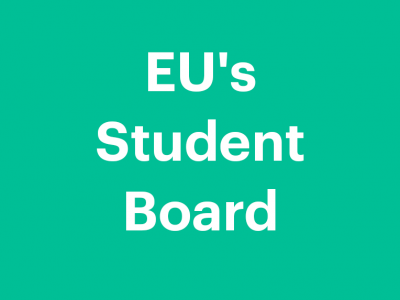During EU Business School’s Annual Career Fair, we spoke to some of the new generation of business leaders, recruiters and hiring managers about the current trends in talent acquisition to find out which are the top 5 skills that are most sought-after by employers.
One of our key learnings was that, nowadays, having the capability to do a specific job is not enough: skills that were once considered ‘nice-to-haves’ now make the difference between getting that dream job or not.


What Do Companies Want?
So, what do companies want today? Well, it’s not what you might expect. Yes, the knowledge acquired from a good education is important, but it’s not enough without the soft skills – such as flexibility, communication skills and cultural awareness – that encourage the creativity and adaptability essential in today’s globalized workplace.
1. Soft Skills and Communication Abilities
One trend in recruitment and talent acquisition stood out above the rest: the shift from an exclusive focus on hard skills to a more nuanced demand for soft skills that complement the business competencies acquired through education.
The business leaders and recruiters in attendance at our Annual Career Fair explained that, while a business education demonstrates a candidate’s competence and capacity for the job, employers are looking for more. They place increasing emphasis on the soft skills and life experiences that complement a potential employee’s education and tangible skills.
These include having the social skills to be able to integrate smoothly into a company’s existing team, and the global knowledge and cultural understanding to relate to clients from around the world. Being people-oriented, as well as service-oriented, is key in the fast-moving business world of today.


2. Flexibility: Responding to Change
Companies are looking for employee flexibility as a response to the constantly evolving and increasingly globalized business world. New roles and tasks are developing rapidly, and a candidate should have the ability to take on new roles and adapt effortlessly to changing circumstances and needs. Jobs are no longer rigidly defined; roles are fluid in order to encourage people to contribute to a broader team dynamic.
Flexible prospective employees who can take on more responsibilities and do a wide variety of tasks have more to offer an employer than those who can only do one or two. These are the candidates who will get the job.
3. A New Way of Thinking: Forget About the Box
EU Alumna and Agile coach at King’s Candy Crush studios, Shirin Elhouri, advises students considering entering her profession that they should not let their thinking be constrained. It’s not enough just to ‘think outside the box’ but we should forget about the box completely. Creativity, critical thinking and sense-making are all highly prized soft skills in today’s business environment.
Computational thinking has been replaced by novel and adaptive thinking. Companies want people to think autonomously and to come up with new and innovative ways of doing things. According to Shirin, independent thinking also ensures that a team can function without relying on one individual which increases productivity and innovation to ultimately increase revenue.


4. Social and Emotional Intelligence
According to EU Alumnus and founder of MBJ London, Julian Baladurage, being knowledgeable about Artificial Intelligence (AI) and other new technologies are valuable skills. However, he believes that social intelligence and cross-cultural competence are the most vital skills to have, because most businesses function on a global scale.
Being able to communicate effectively and apply cultural understanding are invaluable skills. They are paramount when coordinating with others in a team dynamic where there are sure to be people from all over the world working together. As businesses become increasingly globalized, it is inevitable that you will be working alongside people who have vastly different cultural backgrounds, ways of communicating and language skills.
Having developed yourself by traveling, studying abroad and cultural or language exchanges is highly favorable and shows employers that you possess the skills to effectively communicate with a diverse set of people.
5. Know the Tech: Artificial Intelligence
Technology is changing business dramatically. Artificial intelligence and machine learning are already being used to do repetitive and complex tasks that require, for example, computing and calculation skills.
With AI being introduced in the workplace, skills related to programming, big data and data analysis have also seen an increase in desirability. EU Alumnus and Chief Operating Officer of Manchester City F.C., Omar Berrada encouraged students to learn the workings of big data as it is used in every sector, from managing sports teams to the finance industry – the ability to analyse and apply data is in high demand. Having a strong base of knowledge, competence to work with the latest technology will always be highly valued by employers. This is where learnability comes into play. People need to continue updating and developing their skills as the business environment changes.
For an insight into how tech and AI is changing the face of business watch Micha Dohler’s presentation at EU’s ‘The Future is Now: AI and Robotics Summit’:
How to Develop the Right Skills
The essential soft skills that companies now require can be developed in a variety of ways. Communicating with people from different cultures and backgrounds, or even choosing to live in a foreign country, will broaden your world-view, enhance your people skills, and hone your intellectual curiosity.
Skills like flexibility and creative thinking are improved when you step out of your comfort zone or place yourself in real-world situations where these skills can be practiced and polished. These situations will also allow you to become more mature and understanding, deepening your emotional intelligence.
At EU Business School we pride ourselves on preparing our students for the business world today, equipping them with the skills needed to build a successful career in their chosen industry. The diverse student body at EU Business School contributes to cultural awareness and a global outlook, and the inter-campus exchange programme gives students the chance to experience different cultures and environments. We offer our students the option to transfer between our European campuses located in Barcelona, Munich, Geneva and Montreux as well as opportunities to study at our network of partner institutions in other world-class cities like New York and Boston.
Our students are also taught to think creatively and to adapt to change by participating in real-world business scenarios. We also introduce our students to some of the world’s most successful businesspeople in our Learning with Leaders series, providing a unique learning experience and advice to assist them in the future.
These experiences should be highlighted on your résumé and cover letter when applying for a job, to demonstrate your adaptability, willingness to embrace new experiences and your understanding of different cultures.


For more information about EU Business School, click here.








